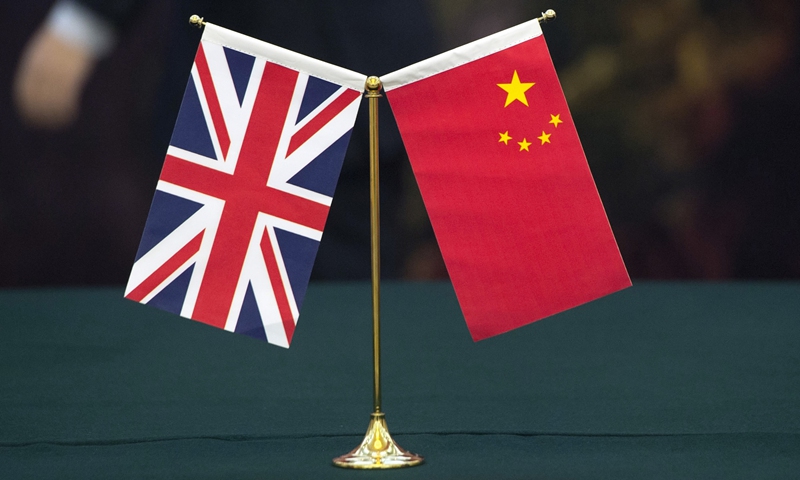New UK report calling for China to be defined as threat ‘misleads public, extremely irresponsible’

China UK Photo:VCG
The spokesperson with the Chinese Embassy in the UK said on Monday night that the mission firmly opposed a new report published by the UK’s Commons Foreign Affairs Committee (FAC), saying the report, which suggested the UK government should characterize China as a “threat,” distorts facts and misleads the public, which is extremely irresponsible.
China-UK ties may fall into a period of turmoil if the UK decides to designate China as a “threat” in its updated defense and foreign policy and take real actions to decouple from China, analysts warned on Monday. But it is still hard to predict the result, analysts said, highlighting the obvious divergence within the UK ruling Conservative Party and the high uncertainty in UK’s policies, especially when it comes to China.
China poses “a significant threat” to the UK and the government should move to curb its dependence on the superpower to enable it to respond to aggression or abuses by Beijing, some UK MPs have warned in a new report on updating the integrated review of defense and foreign policy, Sky News reported Sunday.
While supporting a potentially risky shift in using stronger language toward the economic and military giant, the FAC warned it must be backed up by action rather than “empty rhetoric,” according to the report.
The UK parliament and government have obvious divergences over describing China as a “threat” or “challenge” in the integrated review of defense and foreign policy, which is supposed to be updated in early 2023. The FAC’s remarks are the parliament’s latest attempt to influence the UK government over the issue, according to Cui Hongjian, director of the Department of European Studies at the China Institute of International Studies.
“So far, Prime Minister Rishi Sunak has not been reported to have used the word ‘threat,’ so we can say that the ruling Conservative Party and the administration have not totally accepted this rhetoric,” Cui told the Global Times on Monday.
In his first foreign policy speech in late November, Sunak called China a “systemic challenge to our values and interests” and said that the “golden era” of UK-China relations is over.
Sunak’s two predecessors, Boris Johnson and Liz Truss, had successively defined or planned to define China as a “systemic competitor” and a “threat.”
Anti-China MPs in the UK have been exerting strong pressure on Downing Street, trying to pin China to a “threatening” hostile position on the map of the Prime Minister’s office. Sunak’s calling China a “systemic challenge” was considered by some observers as a “middle number.” He has become more ideological compared with his previous pragmatic attitude toward China, while at the same time maintaining a certain distance from the most radical propositions, observers said.
Given the divergences and high uncertainty in UK’s policies, which is the same problem faced by many other European countries, it is still hard to predict how China will eventually be described in the updated integrated review of defense and foreign policy, Cui believed.
If the updated document calls China a “threat” and the UK government also takes real actions to practically contain China, the two countries’ bilateral ties are certain to fall into a period of turmoil, and could even go backwards, according to Cui.
British foreign policy right now is fundamentally unstable because it is premised on ideology and nationalism, and Sunak has limited control over that, Tom Fowdy, a British political and international relations analyst, told the Global Times previously.
While calling for actions to back up stronger language towards China, the FAC acknowledged that for the foreseeable future, China will continue to be a competitor as well as an essential partner to the UK, not just economically but also in terms of cooperation on issues such as climate change and trade, according to Sky News.
China is now the largest source of imports for the UK, worth 63.6 billion pounds ($76.6 million) or 13.3 percent of all goods imports, according to latest data from the UK Office for National Statistics. There are about 144,000 Chinese students studying in Britain, according to the 2022 figures from the Higher Education Statistics Authority, a number that is up 50 percent in just five years.



